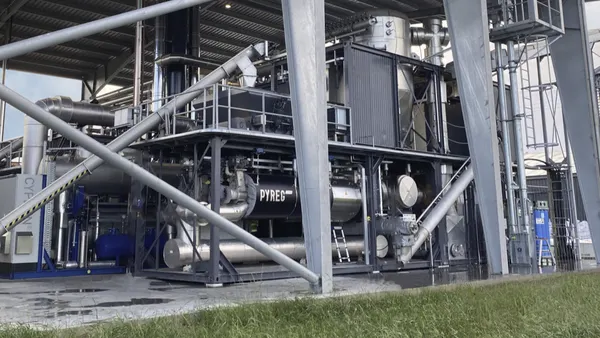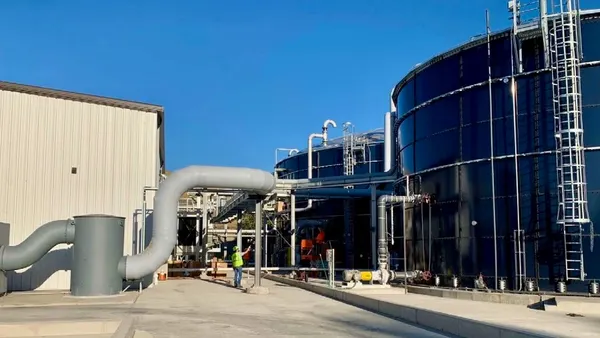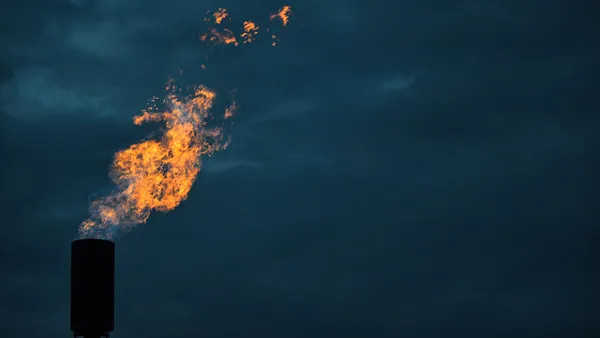UPDATE: Oct. 15, 2018: Vermont's Agency of Natural Resources has granted final permit approval to a Casella subsidiary for expansion of the Coventry landfill. This now includes multiple new conditions around monitoring leachate for PFAS and treating it as necessary, according to VT Digger and VPR. The project still requires one more land use permit, as well as approval for wastewater treatment plans, so opposed parties can be expected to remain engaged in those processes.
UPDATE: Aug. 8, 2018: Vermont's Agency of Natural Resources will delay final approval of the Coventry landfill expansion until new groundwater testing is completed, as reported by VT Digger. Officials want to see proof that PFAS levels don't exceed state limits at six groundwater wells around the site. Casella has said it will comply, and views this as just another step in the process.
This decision comes after the state received dozens of comments, including from a member of the Canadian Parliament, about additional factors to consider before signing off on the expansion. Some Quebec residents source drinking water from nearby Lake Memphremagog.
Vermont's 20 parts per trillion limit for PFAS substances is among the most stringent in the country, as compared to the more common 70 ppt standard set by other states. As scientists and regulators become more aware of the negative health effects related to PFAS chemicals the issue has continued to gain attention throughout the country. The EPA has made it a focus and could eventually set a federal standard.
Dive Brief:
- New England Waste Services of Vermont, a subsidiary of Casella Waste Systems, has received preliminary approval for a 51-acre expansion at the Coventry Landfill. The state's Department of Environmental Conservation has signed off on this expansion, along with 10-year recertification of the existing 78-acre site, pending public comments.
- This expansion would include two new lined cells with an estimated 22 years of capacity. As it stands, the site is expected to reach capacity within four to five years. Vermont currently sends about 70% of its waste to Coventry, as reported by VT Digger, and has no other existing facilities to handle it.
- The proposal has elicited concern from some local residents, with support from the Conservation Law Foundation. The site's proximity to the Black River and an associated wetland, which discharges into Lake Memphremagog along the Canadian border, is a commonly cited factor.
Dive Insight:
Casella has owned what it refers to as the Waste USA site since 1995. The site has one of the longest remaining lifespans of the company's landfills, and CEO John Casella described it as a model for community relations.
The landfill has grown multiple times in its decades of operation — including a 2004 expansion approval and a 2013 increase in permitted capacity — to become a critical piece of Vermont's solid waste infrastructure. The property also includes two closed, unlined landfills within its 627-acre borders. It is now permitted for 600,000 tons per year (but hasn't reached that maximum yet) and is estimated to have 148 acres of permitted or permittable landfill space. In addition, the site also has capacity to generate up to 8 MW of energy via a partnership with Washington Electric Co-op.
All of this made the Coventry site lucrative for both the company and the local community. It has historically been less popular across the border in Quebec, where residents rely on Lake Memphremagog as a drinking water supply.
A Canadian regional government was made party to the 2004 expansion as a result, and the latest DEC conditions include reporting requirements to multiple Canadian entities. Casella's proposal notes that groundwater controls "should prevent any discharge to groundwater that could impact the Black River and associated wetlands."
Beyond the local considerations, the larger question around this proposed expansion is what it means for Vermont's ambitious recycling goals. The state mandates recycling for most standard curbside materials, and is on track to ban disposal of all food waste by July 2020. By extending the landfill's lifespan for decades, and allowing a broader footprint expansion that could in turn lead to future expansion applications, some wonder if Vermont is undermining its Universal Recycling Law.
Casella and other service providers have countered that, while they support the spirit of these goals, market conditions currently make them untenable. Based on this, Vermont's state legislature recently approved a one-year suspension of the mixed paper disposal ban and pushed back compliance dates for organics collection.
Another key consideration is where Vermont's waste would go if Coventry did close. Some think the added cost of exporting to potential sites in New York, Pennsylvania or New Hampshire might be a catalyst for greater change and waste reduction. It could also just get baked into the cost of doing business and displace tonnage elsewhere.
Many have called for a shake-up of the recycling business model as this collision between economic factors and environmental targets plays out around the country. Just how far companies and state governments are willing to go in changing that system remains to be seen.









